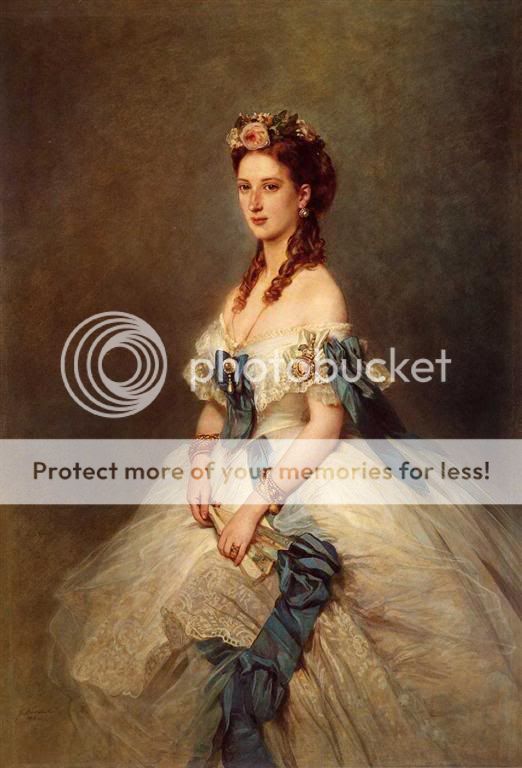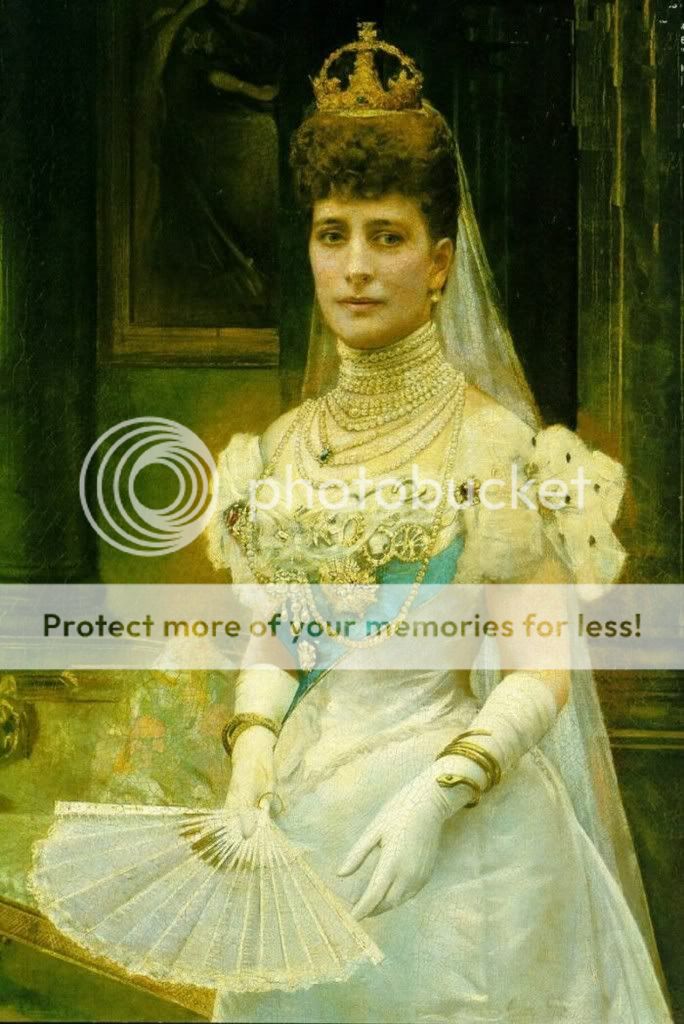but this was the custom amongst the members of the house of glucksburg. likwise her own parents king christian IX and queen louise of denmark and most of her siblings, smothered their offspring with happiness, love, and often treating them as children well into their adulthood. it can be said that this treatment fostered the freshness and fun of youth, it also conserved the love of the family which was so lacking in some of the royal houses of europe of the period.
alexandra was supported 100% by her husband bertie (albert edward, prince of wales) , whom wanted to be regarded as being a elder sibling to his own sons. not surpising given his owm harsh upbringing. it is said he regarded his own father as a hectoring bully who caused him nothing but misery and suffering in his childhood !!
as for the treatment of toria, in alexandra's own family there was another similar situation between her sister, the dowager empress of russia and her youngest daughter grand duchess olga. it is said that the empress in a streak of selfishness, had married olga off to the most unsuitable prince ever (peter of oldenburg), who lived in russia, to ensure that the grand duchess would remain at her beck and call at all times.........
the same can be said in regards alexandra's mother in law queen victoria, for instance princesses helena and beatrice, the queen only allowed the princesses to marry if they remained in england, to be forever at her side ........


 Aaahhh, those impressing, never seen photos of Queen Alexandra and her family ! Thank you !
Aaahhh, those impressing, never seen photos of Queen Alexandra and her family ! Thank you !

